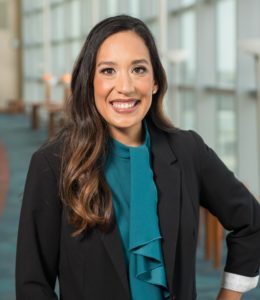We are excited to partner with our board member and Assistant Professor with the IUPUI School of Health & Human Sciences, Dr. Victoria Garcia Wilburn, on her research project, “Understanding Cravings and Triggers in Adolescents Attending a Recovery High School in a COVID-19 Era.” Dr. Victoria Garcia Wilburn and her research partner, Dr. Devon Hensel, received the 2021 Charles Bantz Community Scholar award for this project which just launched in October.

The goal of the study is to understand how triggers and cravings of substances impact students throughout their daily lives. Many adolescents with substance use disorder have difficulty meeting the many demands of teenage life and are at increased risk to drop out of high school (Finch et al., 2018). Regularly meeting life’s demands has become increasingly difficult as life continues to be disrupted by COVID-19. This increased need for mental health services is evidenced by a 24% increase in mental and behavioral health-related emergency room visits (Leeb et al., 2020).
You might be wondering how these triggers and cravings can be measured and tracked. The research team will be using ecological momentary assessment (EMA) which is a data collection method that allows students to report their cravings and triggers at the moment they are experienced. Real-time symptom reporting alleviates recall bias, which is when your memory of an event or experience is inaccurate.
This study started with several focus groups of students over the last two years. The next step is to hold a small pilot group of students prior to launching the project within the entire school. The long-term goal is to implement this project in several other recovery high schools and become a model for the remaining 44 recovery high schools around the nation.
The findings will allow us to best support our students in their recovery journey by providing individualized support. We also hope this data will allow us to capture the real-life barriers associated with substance use disorder. Students will track their symptoms through an app. Hope Academy Executive Director Rachelle Gardner says one of the main benefits of this project is that “it will create a tool for students to help evaluate their cravings and be able to immediately course-correct in real-time.”
The project empowers students to be active participants in their care and recovery. Studies show that when we are active members of our own treatment plans, we are more likely to be successful and compliant in our care. Dr. Victoria Garcia-Wilburn says, “What excites me most about this project, in particular, is giving voice to the teens, amplifying their voices in their recovery.”

